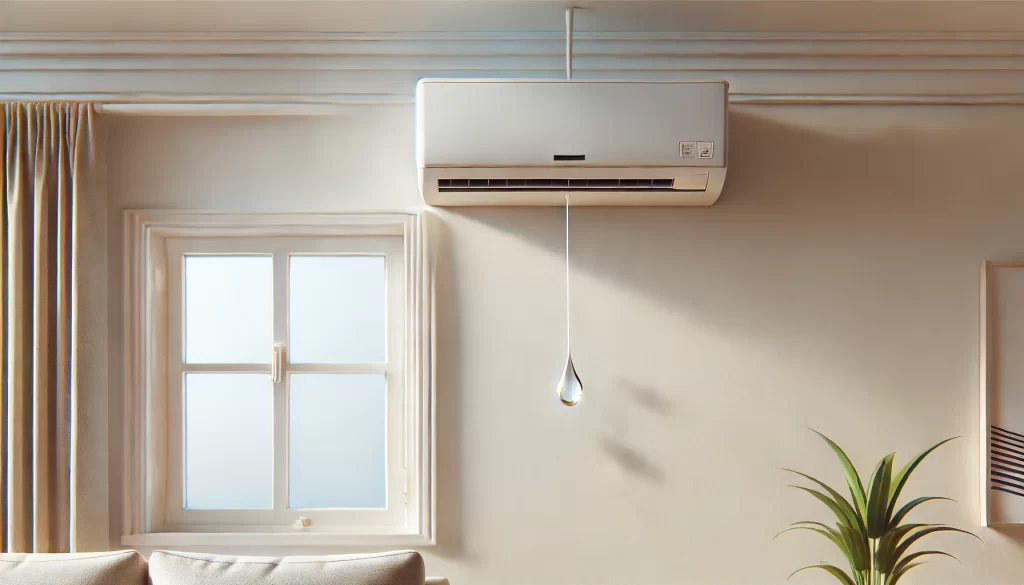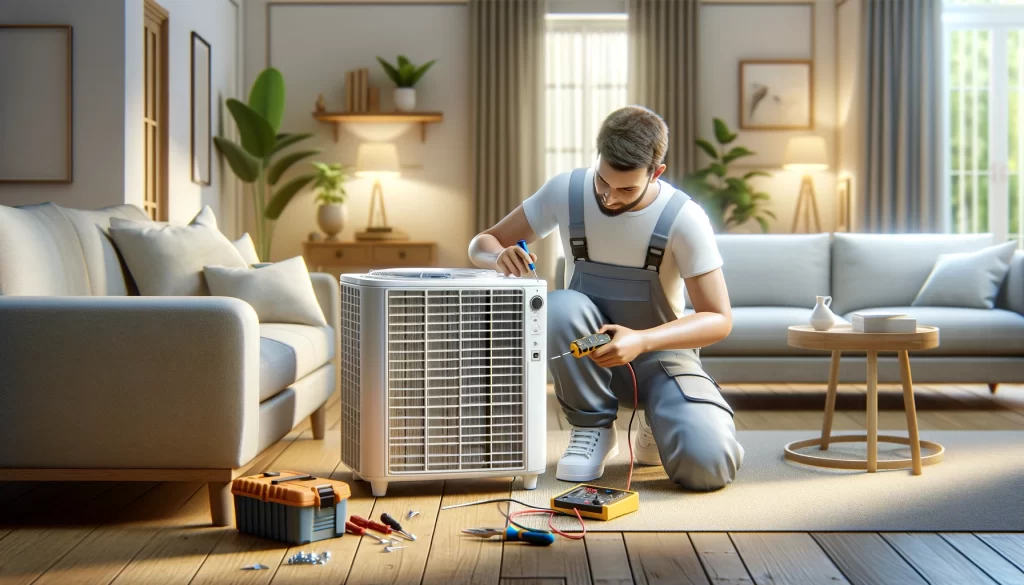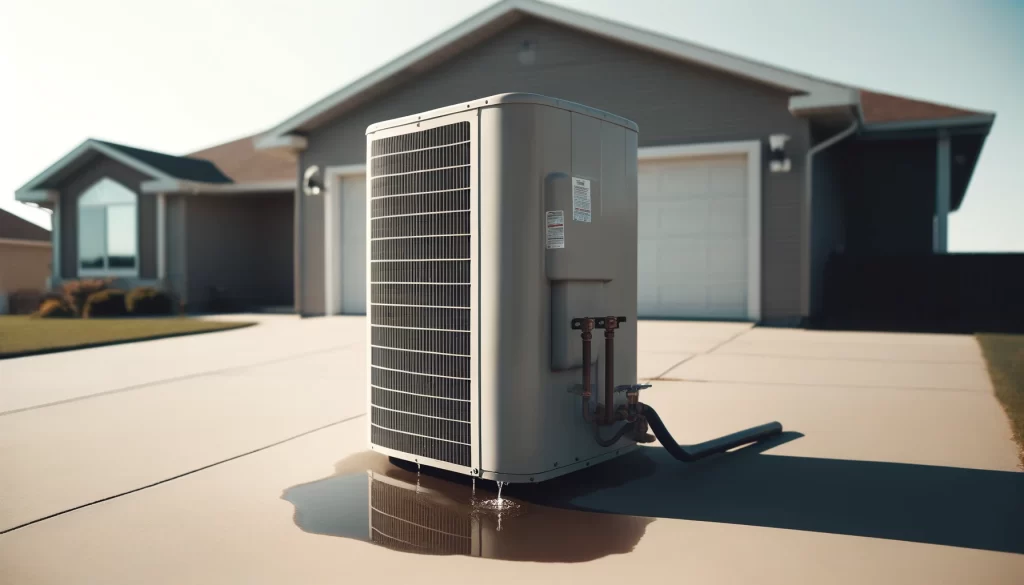
Water dripping from your air conditioner can be concerning, but it’s important to understand the potential risks and causes to address the issue effectively. While water dripping from your AC unit is not inherently dangerous, it can lead to several issues if not addressed promptly. These issues include property damage, electrical hazards, mold growth, and reduced air quality.
Common Causes of Water Dripping from AC
- Clogged Drain Line One of the most common reasons for water leakage is a clogged condensate drain line. Over time, dust, dirt, and debris can build up in the drain line, obstructing the flow of water and causing it to back up into your AC unit and then overflow.
- Dirty Air Filter A dirty air filter can restrict airflow, causing the evaporator coil to become too cold and freeze. When the coil thaws, it produces excess water that may overflow the drain pan.
- Low Refrigerant Levels Insufficient refrigerant can lead to a drop in temperature around the evaporator coil, causing it to freeze. When it thaws, the excess water can leak out.
- Improper Installation or Maintenance Improper installation or poor maintenance can lead to issues such as disconnected drain lines or incorrectly sloped drain pans, which can cause water to leak from the AC unit.
- Condensate Pump Issues If the condensate pump is malfunctioning, it can fail to remove water from the drain pan, leading to overflow and leakage.
Potential Risks of Water Dripping from AC
- Damage to Property Continuous water leakage can cause significant damage to walls, ceilings, and floors. This can result in discoloration, peeling paint, and even structural damage if left unchecked.
- Electrical Hazards Water and electricity are a dangerous combination. Water leakage near electrical components can cause short circuits, posing a fire hazard and potentially damaging the AC unit.
- Mold Growth and Health Risks Excess moisture from water leakage creates an ideal environment for mold and mildew growth. This can lead to respiratory problems, allergies, and other health issues, especially for those with preexisting conditions.
- Reduced Air Quality Excess moisture can foster the growth of bacteria and other contaminants, reducing indoor air quality and leading to unpleasant odors and health problems.
- Increased Energy Costs A leaking AC unit may not operate efficiently, leading to increased energy consumption and higher utility bills.
Preventing Water Dripping from AC
Regular Maintenance and Cleaning
Regular maintenance is crucial in preventing water leakage. Schedule annual inspections and cleanings with a professional technician to ensure all components are functioning properly.
Clearing the Drain Line
Regularly clean the drain line to prevent clogs. Use a wet/dry vacuum or a pipe cleaner to remove any blockages.
Changing the Air Filter
Maintain a clean air filter by following the manufacturer’s recommendations for replacement, typically every 1 to 3 months.
Checking Refrigerant Levels
Monitor refrigerant levels and address any leaks promptly. Low refrigerant levels can cause the evaporator coil to freeze and lead to water leakage.
Monitoring for Ice Buildup
Regularly check for ice buildup on the evaporator coil and refrigerant lines. Address any airflow issues, dirty filters, or refrigerant leaks promptly to prevent ice formation.
When to Seek Professional Help
If you notice persistent water leakage or any signs of electrical issues, mold growth, or inefficient cooling, it is essential to contact a professional technician. They can diagnose and fix the underlying problems, ensuring your AC unit operates safely and efficiently.
In summary, while water dripping from your AC is not immediately dangerous, addressing the issue promptly can prevent more severe problems. Regular maintenance and timely repairs are key to keeping your air conditioner running smoothly and safely.
Watch this video from HVACDirect to know the REASONS Why Your AC Is Leaking Water.
Addressing Immediate Concerns
When you notice water dripping from your AC unit, turning it off immediately is the best first step. This helps prevent further damage and allows you to investigate the cause without the risk of additional water leakage. It’s important to clean up any standing water promptly to avoid mold growth and structural damage.
Health Implications
Mold and mildew resulting from prolonged water leakage can pose serious health risks. If you have allergies, asthma, or a weakened immune system, mold spores can exacerbate respiratory issues and cause other health problems. Addressing water leakage quickly is crucial to maintaining a healthy indoor environment.
Normalcy and Professional Help
Some condensation and minor dripping are normal in AC units, especially in humid conditions. However, persistent or excessive water leakage is not normal and indicates a problem that requires professional attention. Regular maintenance and timely repairs can prevent small issues from becoming major problems.
In summary, while water dripping from your AC is not immediately dangerous, addressing the issue promptly can prevent more severe problems. Regular maintenance and timely repairs are key to keeping your air conditioner running smoothly and safely.

